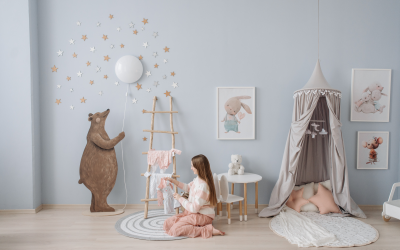One month old baby milestones, development, feeding & activities
The joy of becoming a parent is incomparable and starting a new life, it’s a wonderful beginning and an amazing experience. To the the fully developed newborn on a day to day basis, is even a emotional development for new parents. The birth of your child is a year-long transition that started almost a year before. Newborn babies grow constantly and this can be tricky as parents try and understand what to look for and what to avoid for a healthy, nurturing and prosperous environment for their newborn. Some parents are still learning how to feed, exercise their infants.
On this page
The child’s growth starts when the child is young. Initially your baby is going to grow quickly learning many things about themselves. At 2 years of age cuddling, sleep, and feeding should only matter. It’s a great way to get their brains developing as soon as you see them. Your infant is probably going to cry very much. It is sometimes due to hunger or a dirty diaper. Often babies are crying in silence. Give them some cuddling to calm them down. Your infant must get an extensive health check from a medical professional such as a nurse or family nurse.
How can I help my baby develop?
Give your child some of the time you deserve. Looking deep into the eyes and smiling can make the bond stronger and make the relationship more stable. Tell the baby what you have been singing to. Even if they are not familiar with it, they are able to listen to you and hear you. Music stimulates the sensory senses and keeps people entertained. Playing will help strengthen the bond. Make the child feel better by putting it in the stomach for 1-2 minute stretching. It is termed the belly time. Keep watch on your baby at night when it’s in the womb, so you can sleep on their backs.
One of the most important things you can do to help your baby develop is to create a bond with them. This can be done by spending time with them, talking to them, and playing with them. You should also try to stimulate their sense as much as possible, through activities such a music and belly time. Finally, it is important to keep them safe at all times, by ensuring they are always in a safe sleep position and never left alone.
Your 1-month-old baby
Almost every baby grows differently each day. However, at a minimum of 1 month the animals are growing between 1.5 kg and 2.5 cm. The average height of the females reaches about 1.5 cm yearly. The baby loses weight immediately upon conception. Healthy babies typically reach their normal size within a few weeks and grow. Your child was weighed at birth so a doctor can monitor their growth on an annual growth chart. Your infant is often small or large. It is important for them that the growth continues. Avoid comparing babies weights to other babies.
The length of the babies head circumference is usually between 12 and 34 cm. The average circumference is about 50 cm. It will take some time for the head to reach its full size. Baby boys often have a larger head than girls.
The average weight of a 3-month old baby girl is 9 pounds. (4,1 kg) The average weight of a 3-month old baby boy is 10 pounds (4,5 kg). At birth, the average baby weighs about 7 pounds (3.2 kg).
-
You can help your baby develop by:
-
Giving them eye contact and smiling
-
Talking or singing to them often
-
Playing with them regularly
-
Stretching their body during “belly time”
-
Putting them to sleep on their back to prevent SIDS
-
Monitoring their growth and development, milestones
-
Playing with their voice in order to talk in “baby speech”
-
What can your baby do?
At one month, most baby activities still occur due to reflexes. There is no intention to be a robbery. They will swallow, find milk, hold something in their fingers (although often their fingers will hold their hand tight with tight fists). – They also move one foot to one foot if you place the other foot onto the same flat ground. At 1-months, it should be possible for both to keep focused. They might focus more on a person’s face than on objects, and will look deep in your eyes if held at 45c.
-
You can also help on their developmental milestones:
-
Trying to give your baby new experiences such as different textures and sounds.
-
Encourage them to move more, this will help with their physical development
-
Talk to your baby, even through they cannot respond, they are still building their language skills.
-
Make sure they get plenty of tummy time, this will help with their motor skills.
Tracking wet & dirty diapers
Baby diapering produces about four – 6 wet diapers per day at that point. There are many different “normal” things about the poop diaper. Most babies will have bowel movements once every two days, but some babies may not pooper for days or weeks. It’s okay to eat baby food as long as the stool consistency remains normal. Consult your pediatrician to see what your baby needs. Given all diaper changes you can be sure that your baby will need comfortable, soft diapers.
Please track your baby’s wet and dirty diapers for the first few weeks after birth. This will help us determine if your baby is getting enough to eat and drink.
If you are using cloth diapers, please track the number of diapers changes.
-
Wet diapers:
-
Dirty diapers:
Baby diapering produces about four to six wet diapers per day at that point. There are mny different “normal” things about the poopy diapers. Most babies love to have bowel movements once every two days, but some babies may not pooper for days or weeks. It’s okay to eat baby food as long as the stool consistency remains normal. Consult your pediatrician to see what your baby needs. Given all diaper changes, you can be sure that your baby will need comfortable, soft diapers.
Tips for parents of a 1-month-old baby
Congratulations on becoming a parent! Your pregnancy went well and the baby was born, so it’ll be good for your baby to show off. You might even have some postpartum complications showing up. Once the body recovers and the infant settles into routine, you’ll begin feeling human again. Make a point of leaving your stress levels at bay and enjoying this wonderful time.
Activities for a 1-month-old baby
It can sometimes seem as though babies will never understand the importance of interaction. 1-year-olds can make some amazing movements like focusing their eyes, laughing, responding to sounds, light and other stimulus, including movement of limbs, heads and suckles! You should take the action below immediately after delivering your children home.
Make sure to always hold and cuddle your baby. Respond to their coos and gurgles with your own voice. Provide plenty of eye contact and facial expressions. Get down on their level when you play, so they can see your face clearly. Encourage them to imitate sounds and simple gestures like clapping, waving bye-bye. These are just a few ways that you can encourage interaction with your baby -so get started today!
It is never too early to start reading to your newborn baby. Studies have shown that infants who are read to regularly have a larger vocabulary when they start school. Reading also provides opportunities for cuddling, eye contact and bonding. Choose books with simple pictures and plenty of color. Point out objects in the pictures and make the different sounds that animals or people might make. As your newborn baby gets older, you can extend story time by talking about illustrations and asking questions about the plot.
Playing music for your newborn development is another great way to encourage interaction. Singing nursery rhymes and lullabies is a wonderful way to bond with your little one. Dance around the room together or hold them. Choose while you sway to the music. You can also use musical instruments as activities of 1-month-old baby, like shakers, drums and bells to introduce your baby to the world of sound.
There are all sorts of baby sees for toys available that encourage interaction. Some of our favorites include soft balls, fabric dolls, mobiles, stacking cups and shape sorters. Look for toys that make noise, light up or have moving parts. These will all help to capture your babies attention and stimulate their senses. Try to avoid screen time with electronics like tablets or phones, as this can actually discourage interaction and baby grow.
Whenever possible, get outside with your baby. The fresh air and new scene will do you both good. Go for a walk in the park as parents and visit a local farm or simply spend time in your own backyard.
A day in the life of your baby’s development
The routines in the home of infants include bathing, sleeping, feeding and playing in the following:
The first few months of a child life are spent mainly in the home. During this time, parents and caregivers establish routines for caring for the baby. These routine typically include bathing, sleep, feeding and playing.
As the baby grows older, he or she will begin to participate ion more activities outside the home. As this stage, parents and caregivers must carefully balance their time between work and child-rearing responsibilities. It is important to find a good childcare provider who can drive reliable care while you are away from home.
In the final state of infancy, babies become toddlers and begin to explore their word more independently. Parents and caregivers must continue to provide a safe and supportive environment for the child to grow and developmental milestones. Toddlers often require more supervision than kids, as they are more mobile and prone to accidents.
It is important to remember that each child develop at his or her own pace. Some newborns may reach these milestones earlier than other’s If you have any concerns about your child development, please consult with your pediatrician.
Development problem signs
Baby development can vary greatly. After one month the baby learns a lot about their needs. If:
If a baby is born premature, they may need to be monitored closely as their development may be delayed.
A full-term baby is born, they will generally start to show interest in the world around them and will start to develop their own sleep patterns.
-
At two months old, babies will start to smile and coo and will become more active.
-
By three months old, most babies can hold their head up for short periods of time and will start to reach out and grasp objects.
-
Four-month-old babies are usually more alert and responsive to their surroundings. They will also start to babble and make other sounds.
-
Five-month-old babies can usually roll over from their stomach to their back and vice versa. They will also start to show more interest in solid foods.
-
Six-month-old babies are usually able to sit up with support and may start to crawl. They will also start to teeth during this time.
-
Seven-month-old babies can usually transfer objects from one hand to the other and may start to pull themselves up to a standing position.
-
Eight-month-old babies can usually crawl well and may even take a few steps. They will also start to eat more solid foods and may begin teething.
-
Nine-month-old babies can often stand up with support and may even take a few steps on their own. They will also continue to eat more solid foods and may start to eat finger foods.
-
Ten-month-old babies can usually stand up unsupported and may even take a few steps. They will also continue to eat more solid foods and may start to feed themselves with their hands.
-
Eleven-month-old babies can usually walk well and may even start to run. They will also continue to eat more solid foods and may start to feed themselves with a spoon.
-
Twelve-month-old babies can usually walk well and may even start to run. They will also continue to eat more solid foods and may start to feed themselves with a spoon.
1 month old baby milestones
Those who raise babies from the birth of 1 month are at risk of undergoing milestones. At this time, babies can only see objects that are 20-30 cm from the face. If you want to stimulate your baby’s vision development, you should put a black and white patterned object in front of your baby’s eyes at a distance of about 30 cm.
At 1 month old, babies are also just starting to develop their hearing. They can only hear high-pitched sounds and are still adjusting to all the new noises around them. To help your baby’s hearing development, you can sing or talk to them frequently.
During the first month, babies also start to develop their sense of touch. They are slowly becoming more aware of the world around them and can feel different textures. To help your baby’s sense of touch development, you can provide them with different textures to explore, such as a soft blanket or a stuffed animal.
By the end of the first month, babies typically weigh between 6 and 9 pounds (2.7 and 4.1 kg) and are about 20 inches (51 cm) long. They may have their first bowel movement, called meconium, within the first few days of life. Meconium is a black, sticky substance that is made up of amniotic fluid, lanugo (fine hair), vernix caseosa (a waxy substance that protects the skin), and cells shed from the intestinal walls.
Conclusion
The summary of the development of a one month old baby is as follows:
At one month old, your baby will be able to see and focus on things that are close by. He or she will also be more alert and responsive to the world around them. Your baby will continue to grow and gain weight rapidly during this month. Additionally, your baby’s sleeping patterns will begin to develop more during this month as well. Finally, your baby’s immune system will continue to develop and mature, providing better protection against infection and disease. All of these developments are important milestones in your baby’s first month of life!
Also interesting to read:
- Newborn dry lips: Sign, Causes and Treatments
- EVERYTHING YOU MUST KNOW ABOUT CAN NEWBORNS GET COVID
- How To Clean Baby Ears
- Tips To Get Better At Burping a Newborn That Won’t Burp
- Baby Born Deformed: What are the Main Types of Birth Defects?
- Dog Acting Out after Baby Arrival: A Complete Guide
- Why is My Newborn Wheezing?
- How to Help Your Newborn with Congestion?
- From Crawling to Climbing: Day Care Baby Games
- Bringing Newborn Baby Home from the Hospital





